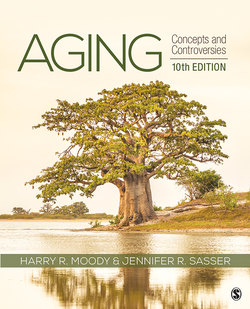Читать книгу Aging - Harry R. Moody - Страница 80
На сайте Литреса книга снята с продажи.
Ways to Prolong the Life Span
ОглавлениеMost theories of aging depict biological aging as an inevitable process, like a disease to which we must all eventually fall victim. Some theories look on the organism as succumbing to chance events, whereas others see it as driven by a built-in biological clock. Yet whether aging is thought to occur by chance or by fate, most theories seem to reach a pessimistic conclusion about the inevitability of aging.
But aging is not a disease; rather, it is a process of change, part of which may make us vulnerable to disease. Instead of being driven by a single primary process timed through a single biological clock, aging is driven by many different clocks, each on a different schedule and unfolding in parallel developmental patterns.
Biological theories of aging could have enormous importance for an aging society. For example, the compression-of-morbidity idea assumes that there is a definite human life span, roughly 85 years, with a broad range from 70 to 100 years. There are thousands who live beyond 100, but the maximum number of years any human being has lived is 122. An age around that level is often assumed to be the maximum life span possible. But today, basic research in the biology of aging is challenging assumptions about a fixed maximum life span and the inevitability of aging as a biological process. Two approaches have been found that could extend the maximum life span for a species: one based on environmental intervention through diet, the other on a genetic approach.
Biological aging is inevitable, but diet and exercise may promote healthier aging.
istockphoto.com/dragana991
